
Warta Mouth National Park: A Serene Haven of Nature and Wildlife
Warta Mouth National Park, located in the western part of Poland, is a pristine sanctuary for nature lovers and wildlife enthusiasts. The park is named after the Warta River, which gracefully merges into the Oder River, creating a unique and diverse ecosystem. The landscape is dotted with marshes, meadows, and forests that provide a home to many species of birds and animals. Bird watchers will find Warta Mouth National Park particularly enchanting, as it is a critical stopover for migratory birds. Over 250 bird species, including rare and endangered ones, can be observed throughout the year. The park's observation towers and trails offer excellent vantage points to watch these feathered visitors in their natural habitat. In addition to bird watching, visitors can enjoy peaceful walks along the numerous trails, take guided tours to learn about the park's flora and fauna, and even go canoeing on the tranquil waters of the Warta River. The park's serene environment makes it an ideal destination for those looking to escape the hustle and bustle of city life and reconnect with nature.
Local tips in Warta Mouth National Park
- Visit during spring or autumn for the best bird watching experiences, as these are peak migratory seasons.
- Bring binoculars and a camera with a good zoom lens to capture the stunning birdlife and scenic views.
- Wear waterproof boots and clothing, as the park's marshy areas can be quite wet, especially after rain.
- Check the weather forecast before planning a canoeing trip; favorable weather conditions will enhance your experience.
- Stop by the park's visitor center to get maps, guides, and updates on any special events or guided tours.
Warta Mouth National Park: A Serene Haven of Nature and Wildlife
Warta Mouth National Park, located in the western part of Poland, is a pristine sanctuary for nature lovers and wildlife enthusiasts. The park is named after the Warta River, which gracefully merges into the Oder River, creating a unique and diverse ecosystem. The landscape is dotted with marshes, meadows, and forests that provide a home to many species of birds and animals. Bird watchers will find Warta Mouth National Park particularly enchanting, as it is a critical stopover for migratory birds. Over 250 bird species, including rare and endangered ones, can be observed throughout the year. The park's observation towers and trails offer excellent vantage points to watch these feathered visitors in their natural habitat. In addition to bird watching, visitors can enjoy peaceful walks along the numerous trails, take guided tours to learn about the park's flora and fauna, and even go canoeing on the tranquil waters of the Warta River. The park's serene environment makes it an ideal destination for those looking to escape the hustle and bustle of city life and reconnect with nature.
When is the best time to go to Warta Mouth National Park?
Iconic landmarks you can’t miss
Malbork Castle
Explore Malbork Castle, a stunning UNESCO World Heritage Site showcasing medieval architecture and rich history in Poland.
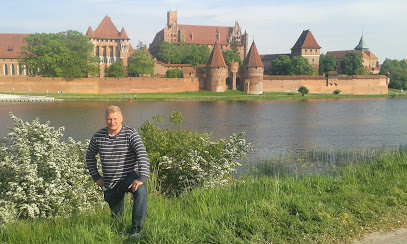
Palace of Culture and Science
Explore the Palace of Culture and Science in Warsaw, a stunning architectural gem filled with cultural experiences and breathtaking city views.

Wieliczka Salt Mine
Explore the Wieliczka Salt Mine, a UNESCO World Heritage site showcasing stunning underground art and rich mining history near Kraków, Poland.
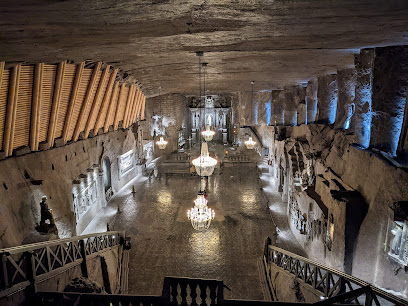
Wolf's Lair
Discover the haunting remnants of Wolf's Lair, Hitler's secret headquarters, set amidst the tranquil beauty of Poland's forests.
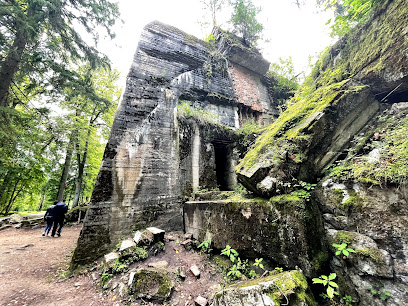
Ojcowski National Park
Experience the natural beauty and rich history of Ojcowski National Park, a must-see destination in Poland for outdoor lovers and adventure seekers.
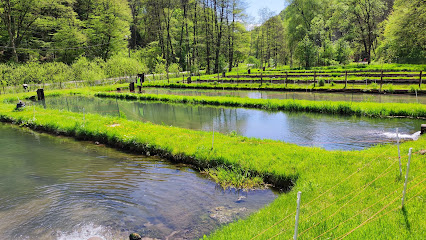
Karkonosze National Park
Explore Karkonosze National Park: A breathtaking blend of nature, adventure, and rich cultural heritage in Poland's stunning mountain landscape.
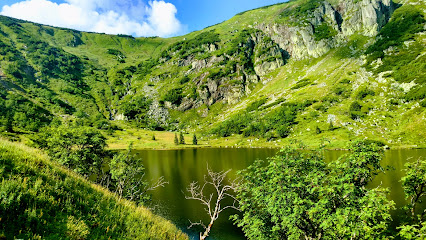
Słowiński National Park
Explore the breathtaking landscapes and unique ecosystems of Słowiński National Park, a must-visit destination for nature lovers in Poland.
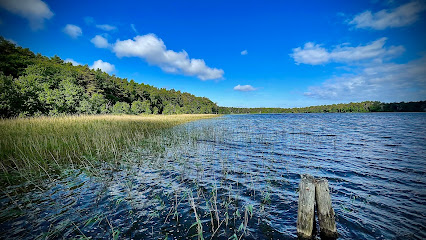
Bieszczady National Park
Discover the natural wonders and breathtaking landscapes of Bieszczady National Park, a perfect escape for outdoor enthusiasts and nature lovers alike.
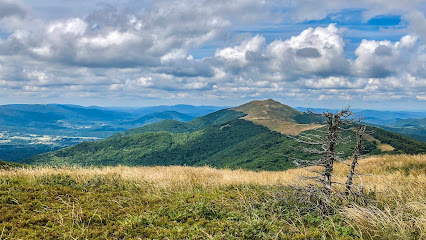
Tatra National Park, Poland
Discover the breathtaking landscapes and diverse wildlife of Tatra National Park, a premier destination for hiking and nature exploration in Poland.
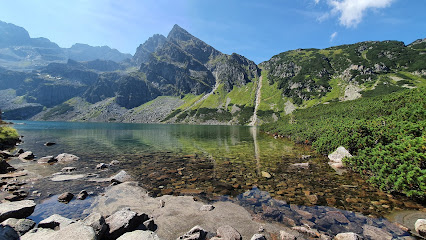
Archaeological Museum in Biskupin
Explore the Archaeological Museum in Biskupin, where history comes alive through ancient settlements and stunning natural landscapes.
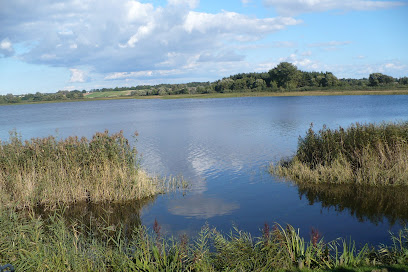
Wolin National Park
Discover the breathtaking landscapes of Wolin National Park, where lush forests, dramatic cliffs, and serene beaches await nature enthusiasts and adventure seekers.
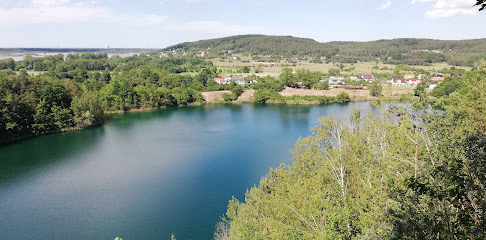
Roztocze National Park
Explore Roztocze National Park, a natural wonder in Poland with scenic trails, diverse wildlife, and breathtaking landscapes for nature enthusiasts.
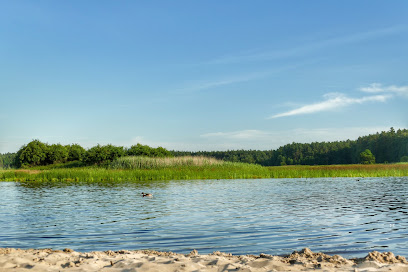
Białowieża National Park
Explore the enchanting Białowieża National Park, home to diverse wildlife and ancient forests, perfect for hiking and nature lovers.
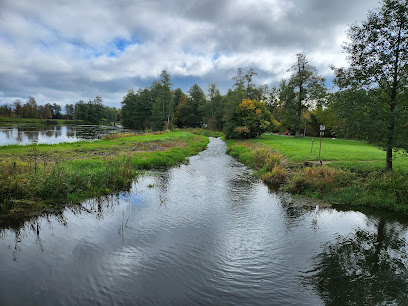
Animal park, Entertainment and Education
Discover the wonders of wildlife at Wojciechów Animal Park, where education meets entertainment in a lush, family-friendly environment.
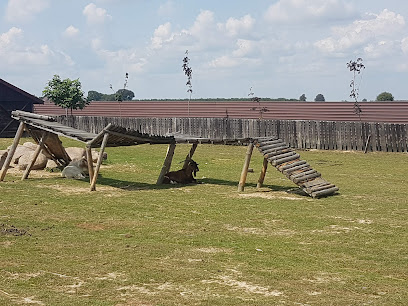
Stare Koryto Warty Park
Discover the natural beauty and tranquility of Stare Koryto Warty Park in Poznań, a perfect retreat for relaxation and scenic views along the Warta River.
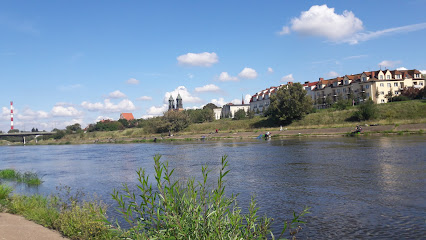
Unmissable attractions to see
Gedenkstätte/Museum Seelower Höhen
Discover the poignant history at Gedenkstätte/Museum Seelower Höhen, where the echoes of World War II resonate through exhibits and memorials.
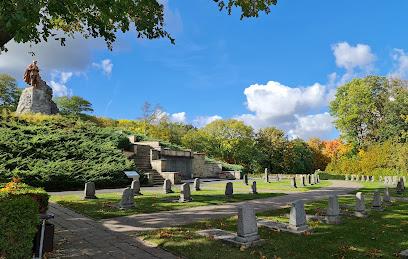
Muzeum Twierdzy Kostrzyn
Explore the fascinating military history of Poland at Muzeum Twierdzy Kostrzyn, where past meets picturesque nature in a unique tourist experience.
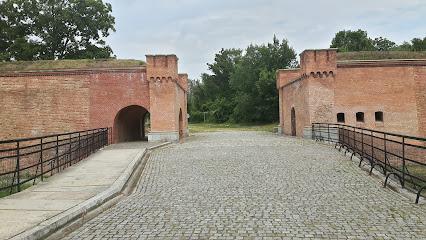
Park Miejski
Discover the tranquil beauty of Park Miejski, a serene green oasis in Kostrzyn nad Odrą, perfect for relaxation and family fun.
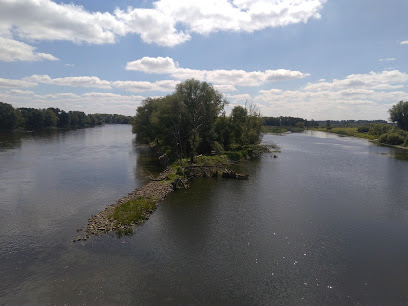
Fort Sarbinowo
Discover the enchanting Fort Sarbinowo, a historical landmark steeped in military history, surrounded by nature's beauty in Poland.
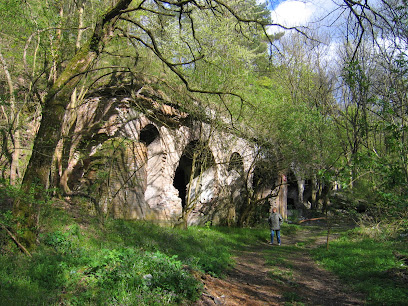
Wikipedia Monument
Explore the Wikipedia Monument in Słubice, a striking sculpture celebrating knowledge and information sharing in the digital age.
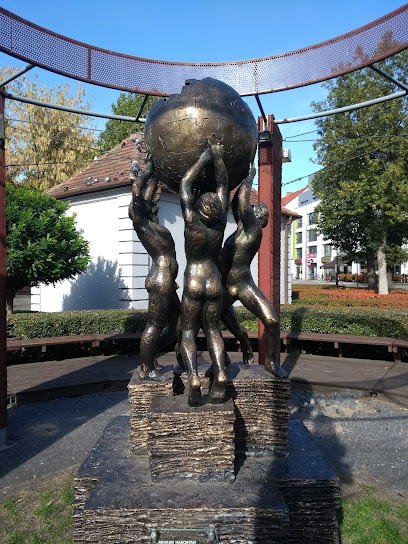
Targ w Kostrzynie nad Odrą
Explore the vibrant Targ w Kostrzynie nad Odrą market, where local flavors and crafts come together in a lively atmosphere.
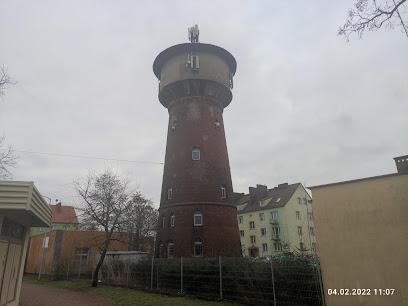
Zamek w Kostrzynie nad Odrą
Explore the historic Zamek w Kostrzynie nad Odrą, a medieval castle rich in heritage, stunning views, and immersive cultural experiences.
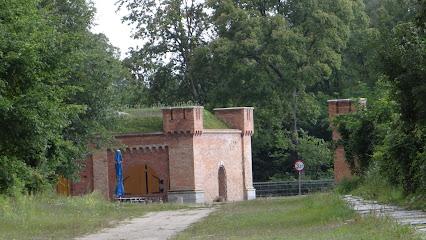
Wieża Eckarta
Explore the historical significance and scenic beauty of Wieża Eckarta in Ośno Lubuskie, a hidden gem in Poland that captivates visitors.
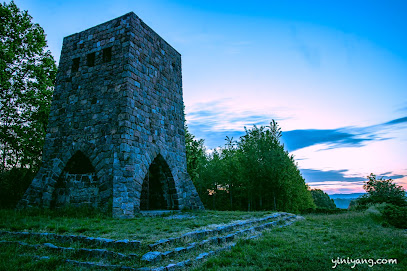
Muzeum Łąki w Owczarach
Explore the ecological wonders of Muzeum Łąki in Owczary, a museum dedicated to the beauty and diversity of Poland's meadows and natural heritage.
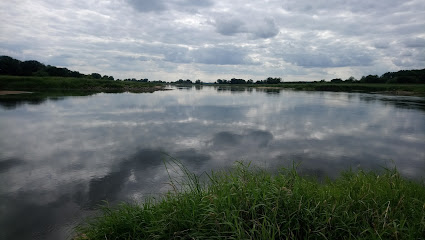
Postomskie Młyny - III Młyn
Explore the serene beauty and rich heritage of Postomskie Młyny - III Młyn, a picturesque tourist attraction in Poland, perfect for nature lovers and history enthusiasts.
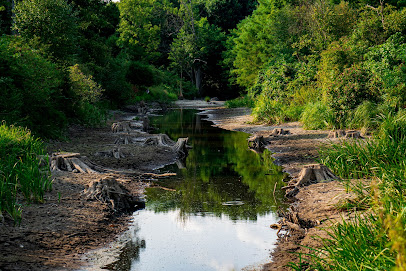
Muzeum Chwały Oręża Polskiego w Witnicy
Explore Poland's military history at Muzeum Chwały Oręża Polskiego in Witnica, where bravery and valor come to life through captivating exhibits.
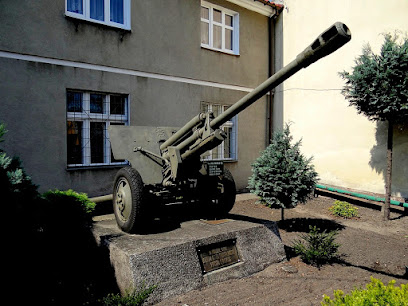
Bastion Brandenburgia
Discover the historic Bastion Brandenburgia in Kostrzyn nad Odrą, a remarkable fortress reflecting Poland's rich military heritage and scenic beauty.
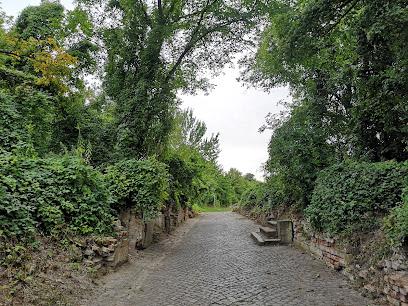
Baszta Krzaków
Experience the captivating history and breathtaking views at Baszta Krzaków, an iconic historical landmark in Ośno Lubuskie.
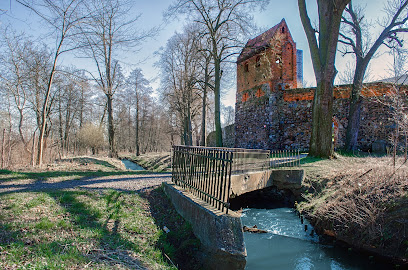
Lubusz Brewery Museum in Witnica
Explore the rich history of brewing at the Lubusz Brewery Museum in Witnica, featuring interactive exhibits and local beer tastings.
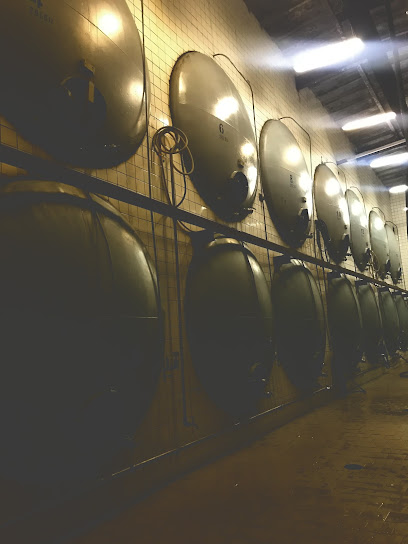
Wieża Widokowa
Experience breathtaking views at Wieża Widokowa in Porzecze, the perfect destination for nature lovers and photography enthusiasts.
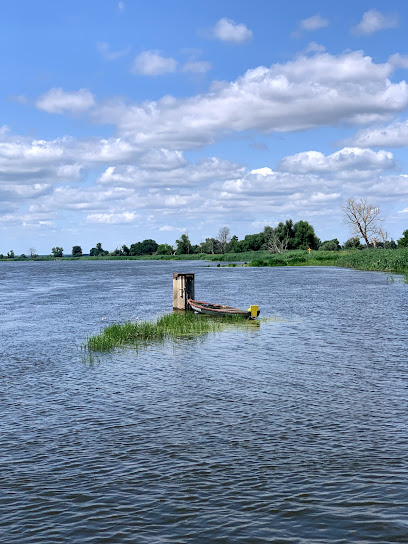
Essential places to dine
Pod Wiatrakiem
Experience authentic Polish cuisine and warm hospitality at Pod Wiatrakiem in Warta – your perfect retreat for dining and celebrations.
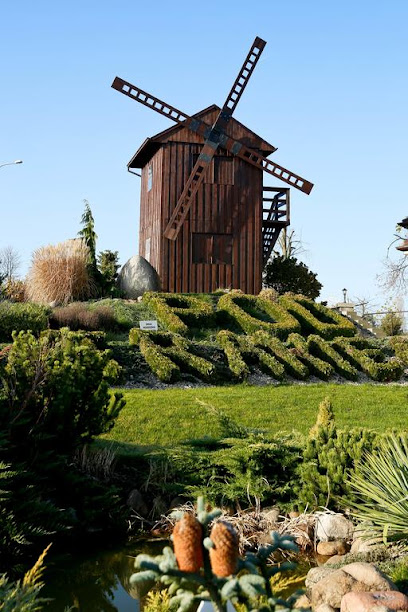
RESTAURACJA RYBNA NAD WARTĄ
Experience exquisite seafood dining at Restauracja Rybna nad Wartą by the beautiful Warta River in Nowe Miasto nad Wartą.
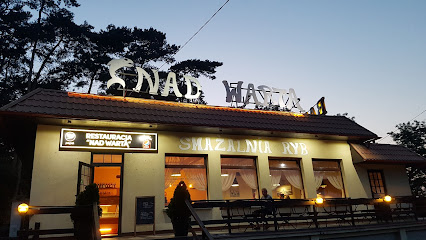
Dolina Warty
Experience serenity at Dolina Warty – where nature meets comfort in Poland's enchanting countryside.
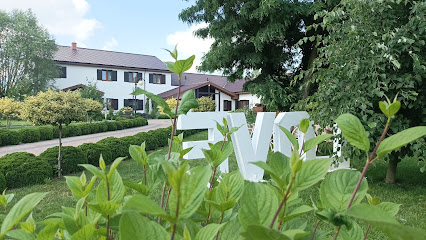
OT.Warta
Experience authentic Polish cuisine at OT.Warta in Poznań - where tradition meets modern taste in a warm and inviting atmosphere.
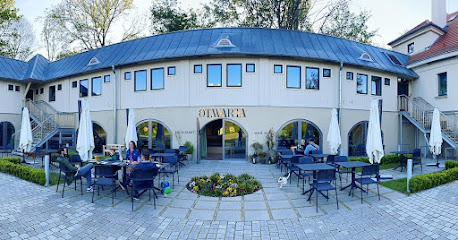
Markets, malls and hidden boutiques
Küstriner Polenmarkt
Explore Küstriner Polenmarkt: A vibrant shopping destination offering local crafts, delicious delicacies, and rich cultural experiences.
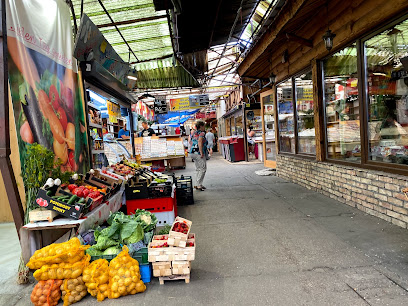
Travel FREE
Explore Kostrzyn nad Odrą's Travel FREE for a diverse shopping experience filled with local flavors and international brands.
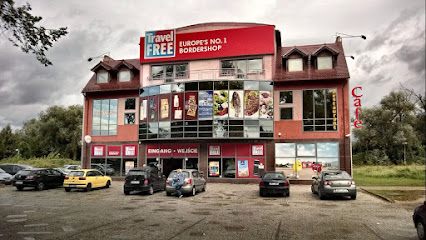
Lewiatan
Explore the culinary delights of Poland at Lewiatan Grocery Store in Kostrzyn nad Odrą, a local hub for fresh produce and traditional treats.
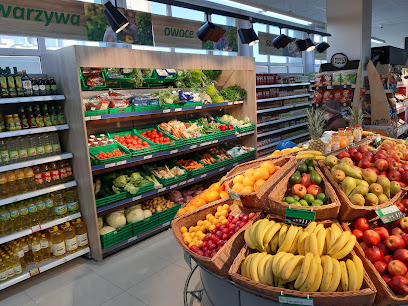
Sklep militarny SportGunShop
Explore SportGunShop in Kostrzyn nad Odrą, a premier destination for military enthusiasts and hobbyists seeking quality gear and a welcoming atmosphere.
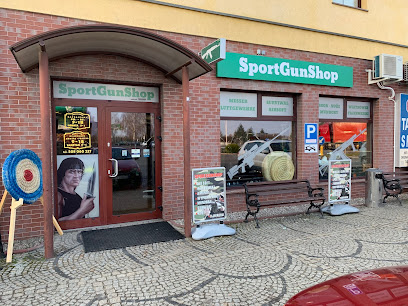
Buddha Vape & Cannabis Shop Kostrzyn
Discover quality vaporizers and a welcoming atmosphere at Buddha Vape & Cannabis Shop in Kostrzyn nad Odrą, the go-to destination for enthusiasts.
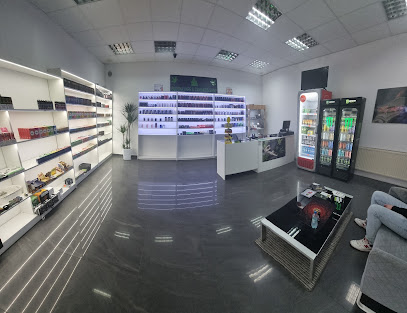
Wendre Poland Sp. o.o.
Explore Wendre Poland Sp. o.o. for premium bedding solutions in Kostrzyn nad Odrą, where quality meets comfort for an unforgettable sleep experience.
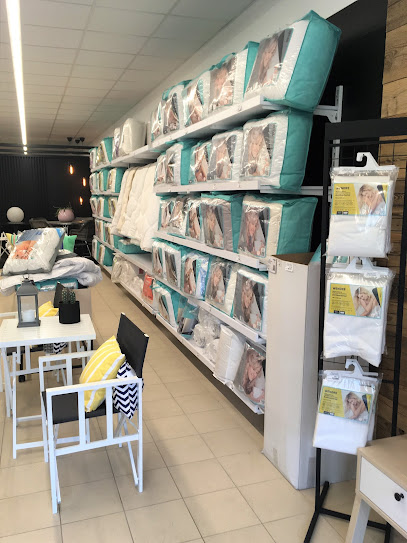
Sklep odzieżowy Mila
Shop at Sklep odzieżowy Mila for trendy and unique clothing in Kostrzyn nad Odrą, perfect for tourists looking to enhance their wardrobe.

kaes.
Explore the latest trends in men's fashion and footwear at kaes., a premier clothing store in Kostrzyn nad Odrą.
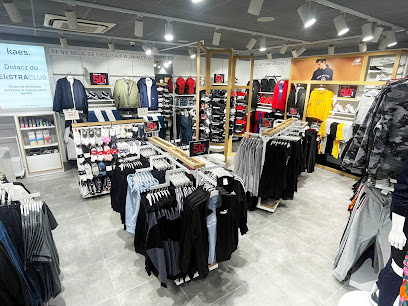
Sklep
Discover the essence of Polish flavors at Sklep, a local grocery store in Kostrzyn nad Odrą offering fresh produce and traditional delicacies.
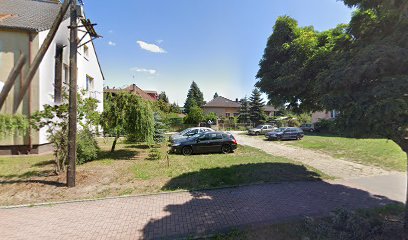
Butik Alice
Discover Butik Alice in Kostrzyn nad Odrą, where Polish fashion meets personalized shopping experiences for every style.

Błażków Stanisław. Wyrób i sprzedaż lodów, mała gastronomia
Discover the delightful flavors of artisanal ice creams at Błażków Stanisław, a must-visit dessert shop in Kostrzyn nad Odrą.
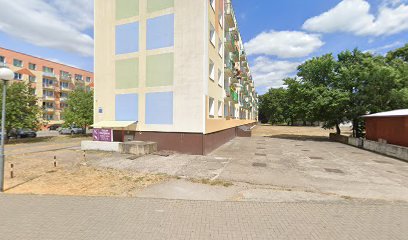
Wima. PH. Wilman M.
Discover unique fashion treasures at Wima in Kostrzyn nad Odrą, a must-visit clothing store for style-conscious travelers.
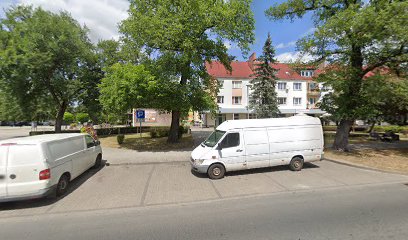
Volcano
Explore the latest fashion trends at Volcano clothing store in Kostrzyn nad Odrą, where style meets local flair.
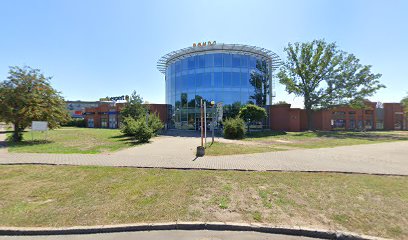
Diverse
Explore the latest fashion trends at Diverse, Kostrzyn nad Odrą's premier clothing store for stylish apparel and accessories.
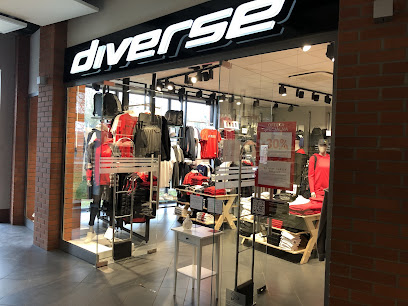
Suska Barbara. Firma handlowa
Experience the charm of local craftsmanship at Suska Barbara, a unique store in Kostrzyn nad Odrą, perfect for finding special souvenirs.
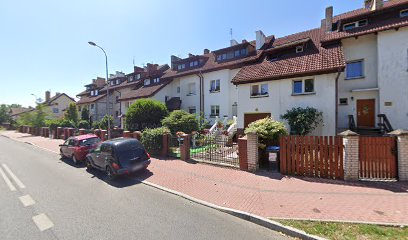
Essential bars & hidden hideouts
Pod Wiatrakiem
Experience the flavors and festivities of Warta at Pod Wiatrakiem, where delightful dining meets vibrant entertainment.
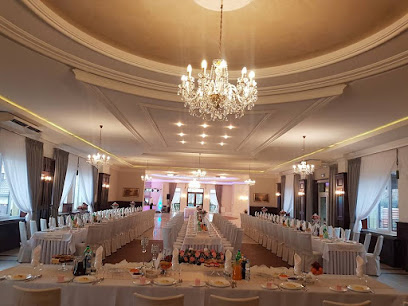
Lavi Bar & Restaurant
Experience the culinary delights of Lavi Bar & Restaurant in Kostrzyn nad Odrą, where traditional flavors meet modern dining.
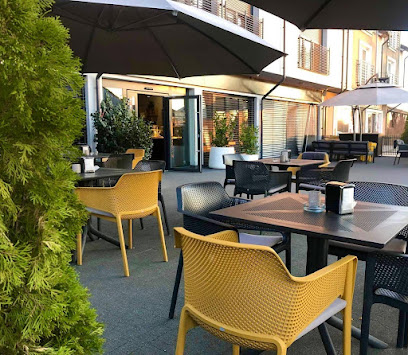
Bar Port Strefa - Bar 24h
Experience the vibrant atmosphere at Bar Port Strefa, Słubice's 24-hour bar and restaurant perfect for late-night cravings and socializing.
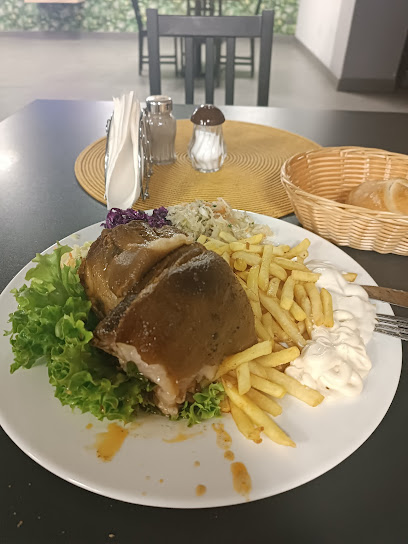
Klubokawiarnia Na Kole
Experience the heart of Polish cuisine at Klubokawiarnia Na Kole, where local flavors meet a cozy atmosphere in Kostrzyn nad Odrą.
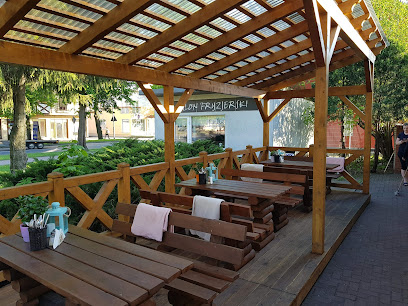
Delta Bar
Discover the charm of Delta Bar in Słubice, a cozy spot for drinks and socializing, perfect for tourists looking for local flavor.
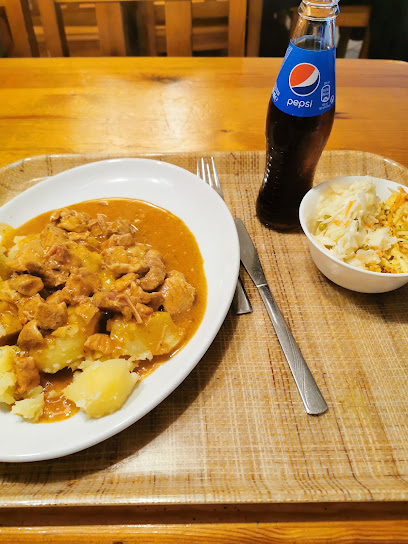
Kanarek
Discover the delightful tastes of local craft beers and authentic Polish cuisine at Kanarek Brewpub in Kostrzyn nad Odrą.
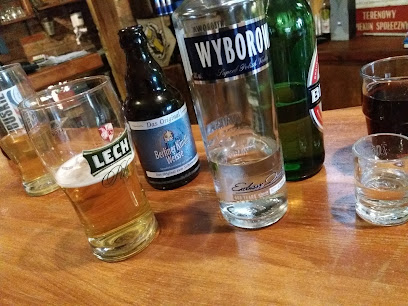
PORT STREFA - bar i parking TIR (dawny bar Hartwig)
Discover the charm of Port Strefa, a cozy bar and restaurant in Słubice offering local flavors and a welcoming atmosphere for every traveler.
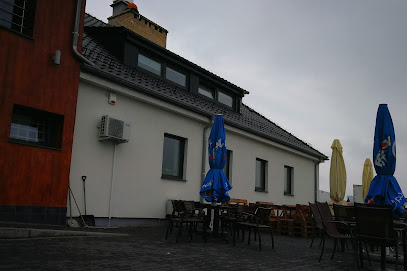
Wartownia
Discover Wartownia, a brewpub in Kostrzyn nad Odrą, offering exquisite craft beers and a welcoming atmosphere for all beer lovers.
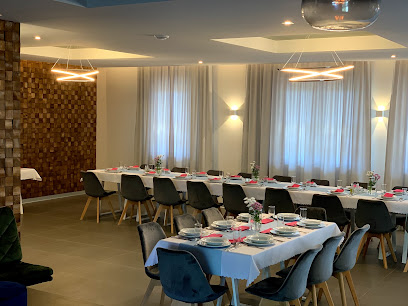
ZADOM MARKET SPOŻYWCZY, BAR CAPSELL
Discover local flavors and community spirit at Zadom Market and Bar Capsell in Kostrzyn nad Odrą, where shopping meets dining in a cozy atmosphere.
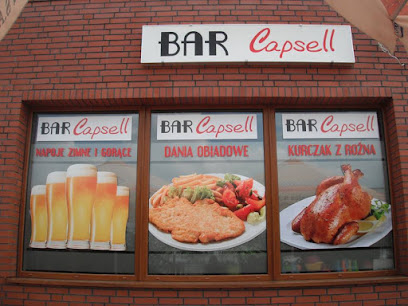
Rampa. Kawiarnia. Bartoch M.
Explore the vibrant flavors of Rampa Kawiarnia, a brewpub in Kostrzyn nad Odrą offering delicious pizza and craft beers in a cozy setting.
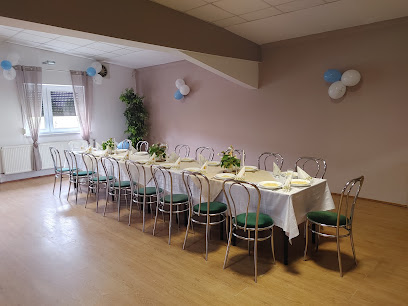
Krokodyl. Bar. Kulik R.
Discover the charm of Krokodyl Bar in Witnica, where local culture meets a cozy atmosphere and delightful drinks await.
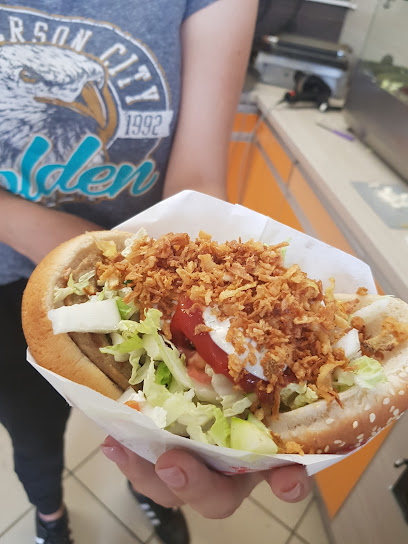
RED-PUB
Discover the electric nightlife at RED-PUB in Kostrzyn nad Odrą, where great drinks and dancing come together for an unforgettable evening.
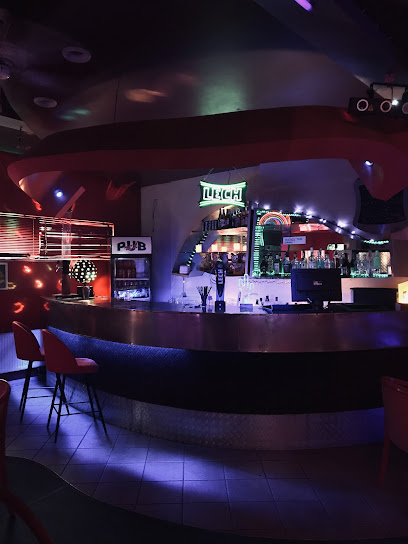
Kamien Maly
Experience the charm of Słońsk at Kamien Maly, where local flavors and cozy ambiance meet for an unforgettable evening.
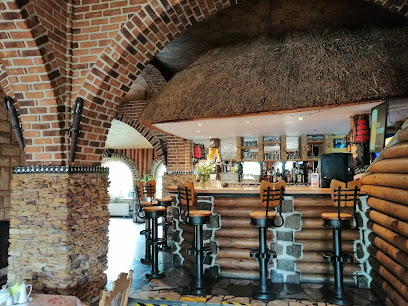
Zanzibar Pub
Experience the vibrant nightlife of Słubice at Zanzibar Pub, where creative cocktails and live music create unforgettable memories.
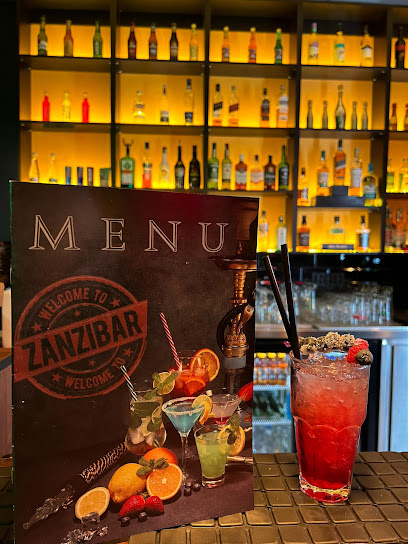
Jerry BAR
Discover the charm of Jerry BAR in Słubice - a cozy spot for drinks, relaxation, and friendly conversation in the heart of Poland.
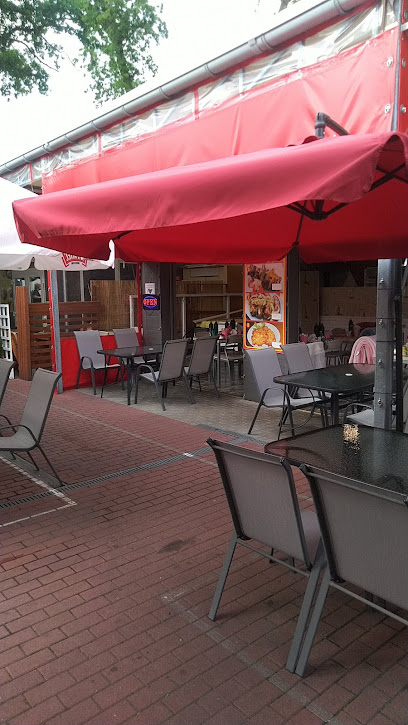
Local Phrases about Warta Mouth National Park
-
- HelloCześć
[cheshch] - GoodbyeDo widzenia
[do veedzenia] - YesTak
[tahk] - NoNie
[nyeh] - Please/You're welcomeProszę
[prosheh] - Thank youDziękuję
[jen-koo-yeh] - Excuse me/SorryPrzepraszam
[pzeh-prah-sham] - How are you?Jak się masz?
[yak sheh mahsh] - Fine. And you?Dobrze. A ty?
[dohb-zeh. ah ti] - Do you speak English?Czy mówisz po angielsku?
[chi moovish poh ahn-gyell-skoo] - I don't understandNie rozumiem
[nyeh roh-zoo-mee-em]
- HelloCześć
-
- I'd like to see the menu, pleaseChciałbym zobaczyć menu, proszę
[h-chyah-bim zoh-bah-chich meh-noo, pro-sheh] - I don't eat meatNie jem mięsa
[nyeh yem myen-sah] - Cheers!Na zdrowie!
[nah zdroh-vee-eh] - I would like to pay, pleaseChciałbym zapłacić, proszę
[h-chyah-bim zah-plah-cheech, pro-sheh]
- I'd like to see the menu, pleaseChciałbym zobaczyć menu, proszę
-
- Help!Pomocy!
[poh-moh-tsi] - Go away!Idź sobie!
[eedz soh-byeh] - Call the Police!Zadzwoń po policję!
[zahdz-vohn poh po-leet-syeh] - Call a doctor!Zadzwoń po lekarza!
[zahdz-vohn poh leh-kah-zah] - I'm lostZgubiłem się
[zgoo-bee-wem sheh] - I'm illJestem chory
[yeh-stem hoh-ri]
- Help!Pomocy!
-
- I'd like to buy...Chciałbym kupić...
[h-chyah-bim koo-peech] - I'm just lookingTylko się rozglądam
[t-ool-koh sheh rohz-gwah-dahm] - How much is it?Ile to kosztuje?
[ee-leh toh kohs-too-yeh] - That's too expensiveTo zbyt drogie
[toh zbyt droh-gyeh] - Can you lower the price?Czy możesz obniżyć cenę?
[chi mo-zhesh ohb-nee-zhich che-neh]
- I'd like to buy...Chciałbym kupić...
-
- What time is it?Która jest godzina?
[k-toh-rah yest goh-dzee-nah] - It's one o'clockJest pierwsza
[yest pyehr-voosh-ah] - Half past (10)Pół do dziesiątej
[poow doh djeh-shon-teh] - MorningRanek
[rah-nek] - AfternoonPopołudnie
[poh-pow-ood-nyeh] - EveningWieczór
[vyeh-choor] - YesterdayWczoraj
[v-choh-rye] - TodayDzisiaj
[djee-syahy] - TomorrowJutro
[yoo-troh] - 1Jeden
[yeh-den] - 2Dwa
[dvah] - 3Trzy
[t-shih] - 4Cztery
[ch-teh-ri] - 5Pięć
[pyehnch] - 6Sześć
[sheshch] - 7Siedem
[shyeh-dem] - 8Osiem
[oh-shyem] - 9Dziewięć
[djyeh-nyehch] - 10Dziesięć
[djyeh-shon-tyehch]
- What time is it?Która jest godzina?
-
- Where's a/the...?Gdzie jest...
[g-dzhe yest] - What's the address?Jaki jest adres?
[yah-kee yest ah-drehss] - Can you show me (on the map)?Czy możesz mi pokazać (na mapie)?
[chi mo-zhesh mee poh-kah-zahch (nah mah-pee-eh)] - When's the next (bus)?Kiedy jest następny (autobus)?
[kyeh-dee yest nah-stehp-neh (ow-toh-boos)] - A ticket (to ....)Bilet (do ....)
[bee-let (doh)]
- Where's a/the...?Gdzie jest...
History of Warta Mouth National Park
-
Established in 2001, Warta Mouth National Park (Park Narodowy Ujście Warty) is one of Poland's youngest national parks. It was created to protect the unique wetland ecosystem found at the confluence of the Warta and Oder rivers. The park stretches over 80 square kilometers and is a haven for birds, with over 270 species recorded.
-
Archaeological evidence suggests that the area around Warta Mouth National Park has been inhabited since prehistoric times. Findings of flint tools, pottery, and remnants of ancient settlements indicate that early humans recognized the fertile grounds and abundant water resources of the region.
-
During the medieval period, the Warta and Oder rivers served as crucial trade routes connecting various parts of Europe. The rivers facilitated the movement of goods such as grain, timber, and salt. The strategic location of the park made it a vital point of commerce and passage for traders and merchants.
-
The area of Warta Mouth National Park saw significant action during World War II. The rivers and surrounding marshlands were used by both German and Soviet forces for strategic advantages. Numerous bunkers, trenches, and other military remnants can still be found in the park, offering a poignant reminder of the conflict.
-
The park is not only rich in natural beauty but also in cultural heritage. Various local communities have lived in harmony with this unique landscape for centuries. Traditional fishing, farming, and folklore are still practiced and celebrated, reflecting a deep connection between the people and their environment.
-
In recent years, Warta Mouth National Park has become a focal point for conservation efforts. Various projects aimed at preserving the park's biodiversity have been initiated, including habitat restoration for endangered species and water management plans to maintain the delicate balance of the wetland ecosystem.
Warta Mouth National Park Essentials
-
Warta Mouth National Park is located in western Poland, near the town of Kostrzyn nad Odrą. The nearest major airport is Poznań-Ławica Airport (POZ), approximately 120 kilometers away. From the airport, you can rent a car or take a train to Kostrzyn nad Odrą, which takes about 2 hours. Alternatively, Berlin Brandenburg Airport (BER) in Germany is around 80 kilometers away, and you can reach the park by taking a train or bus to Kostrzyn nad Odrą, followed by a short taxi ride.
-
Within Warta Mouth National Park, the best way to get around is by car or bicycle. There are several well-marked trails for hiking and cycling, allowing you to explore the park at your own pace. Local taxis are available in nearby towns like Kostrzyn nad Odrą for short trips. Public buses also operate in the area, but they may have limited schedules, especially on weekends and holidays.
-
The official currency in Poland is the Polish Zloty (PLN). Credit and debit cards are widely accepted in most hotels, restaurants, and shops in nearby towns. However, it is advisable to carry some cash, especially when visiting more remote areas of the park. ATMs are available in Kostrzyn nad Odrą, but make sure to withdraw sufficient cash before heading into the park.
-
Warta Mouth National Park is generally a safe destination for tourists. However, it is always wise to take standard precautions. Avoid wandering alone at night in unfamiliar areas and keep an eye on your belongings in crowded places. There are no specific high-crime areas targeting tourists, but staying vigilant and aware of your surroundings is always recommended.
-
In case of an emergency, dial 112 for immediate assistance. The nearest medical facilities are located in Kostrzyn nad Odrą, where you can find a hospital and several pharmacies. It is recommended to have travel insurance that covers medical emergencies. For minor health issues, you can purchase over-the-counter medications at local pharmacies.
-
Fashion: Do wear comfortable and practical clothing suitable for outdoor activities. Avoid wearing high heels or open-toed shoes on hiking trails. Religion: Do respect local customs and traditions. Although the park is not a religious site, being considerate of local culture is important. Public Transport: Do be respectful and considerate of other passengers. Don't play loud music or talk loudly on public transport. Greetings: Do greet people with a friendly 'Dzień dobry' (Good day). A smile and a nod are also appreciated. Eating & Drinking: Do try local dishes and specialties. Don't refuse food or drink offered by locals, as it may be considered impolite.
-
To experience Warta Mouth National Park like a local, consider visiting during the early morning or late afternoon when the park is less crowded. Bring binoculars for birdwatching, as the park is home to a diverse range of bird species. Engage with local guides who can provide in-depth knowledge about the park's flora and fauna. Don't miss the opportunity to take a boat tour along the Warta River for a unique perspective of the park's landscape.
Trending Landmarks in Warta Mouth National Park
-
Malbork Castle
-
Palace of Culture and Science
-
Wieliczka Salt Mine
-
Wolf's Lair
-
Ojcowski National Park
-
Karkonosze National Park
-
Słowiński National Park
-
Bieszczady National Park
-
Tatra National Park, Poland
-
Archaeological Museum in Biskupin
-
Wolin National Park
-
Roztocze National Park
-
Białowieża National Park
-
Animal park, Entertainment and Education
-
Stare Koryto Warty Park
Nearby Cities to Warta Mouth National Park
-
Things To Do in Szczecin
-
Things To Do in Potsdam
-
Things To Do in Poznan
-
Things To Do in Dresden
-
Things To Do in Leipzig
-
Things To Do in Wroclaw
-
Things To Do in Bydgoszcz
-
Things To Do in Rostock
-
Things To Do in Torun
-
Things To Do in Hradec Králové
-
Things To Do in Prague
-
Things To Do in Karlovy Vary
-
Things To Do in Kutná Hora
-
Things To Do in Lubeck
-
Things To Do in Erfurt








